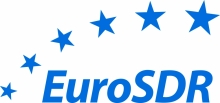The use of Volunteer Geographic Information for producing and maintaining authoritative Land Use and Land Cover data
This two half days online workshop is organized on behalf of EuroSDR (A European Spatial Data Research network organization linking national mapping and cadastral agencies with research institutes and universities), the LandSense project (A Citizen Observatory and Innovation Marketplace for Land Use and Land Cover Monitoring) and IGN (The French National Mapping Agency). LandSense delivers innovate technologies for data collection, change detection, data quality assessment, offering tools and systems to empower different communities (e.g., private companies, NGOs, NMAs, research, public authorities) for land use and land cover (LULC) monitoring and reporting.
Context and Objective
LULC data are necessary for different applications (e.g., urbanization growth, biodiversity conservation, climate change) in monitoring our environment at national, regional and local scales. Different European initiatives such as CORINE Land Cover, Copernicus, Urban Atlas allow the production of LULC data in vector format (i.e. feature-based LULC). The National Mapping Agencies (NMAs) also produce feature based LULC data at regional or national scales.
The feature-based LULC data are generally cyclically produced every 3 to 6 years, which is not always adequate. Moreover, producing LULC data is costly and a lack of in-situ information can generate incompleteness or inaccuracies. Recent research shows that LULC databases may take advantages of the use of Volunteer Geographic Information (VGI) to produce, improve or update LULC data. For example, different approaches allowing to derive LULC data from OpenStreetMap are proposed. Thus, in this context the objective of the workshop is to bring together different actors such as National Mapping Agencies, academic communities, private companies having experiences in feature-based LULC data production or change detection in order to 1) address an exhaustive list of the current practices and issues in mapping feature-based LULC data and 2) share innovative approaches to produce, monitor and update LULC data.
Topics
The major areas of interest include the following topics:
- Feature-based LULC data production
- Feature-based LULC update
- LULC Change detection
- LULC Monitoring services
- Collection and Use of VGI to produce LULC data
- VGI and authoritative LULC data integration
- LULC data quality assessment
- LULC data infrastructure
- LULC data policies
Program
You can download the program here.
Day 1: November 24, 2020
9:15 Welcome (Ana-Maria Olteanu-Raimond and Joep Crompvoets)
9:30 Introduction (chair Bénédicte Bucher)
– Land Use and Land cover data: specificities and challenges, Clément Mallet, IGN France (pdf)
– VGI and Citizen science for LULC monitoring, Inian Moorthy, IIASA and Ana-Maria Olteanu-Raimond, IGN France (pdf)
10:20 - 10:50 “Virtual Coffee” Break
10:50 - 12:30 Session 1: Use of VGI for LULC data production (chair Clément Mallet)
– National Land Cover and Land Use Information System of Spain (SIOSE)- Coordination, production, maintenance and VGI, Delgado Hernández Julián, IGN Spain (pdf)
– A fusion data approach for integrating VGI to update and enrich authoritative LULC data, Lanfa Liu, Ana-Maria Olteanu-Raimond, Laurence Jolivet, Arnaud le Bris, IGN France (pdf)
– OpenStreetMap for Earth Observation (OSM4EO) land use application and benchmark, Michael Schultz, University of Heidelberg (pdf)
– Using OpenStreetMap as a data source for training classifiers to generate LULC maps, Cidália C. Fonte, Joaquim Patriarca, Ismael Jesus and Diogo Duarte, University of Coimbra (pdf)
12:30 Closing day one (Ana-Maria Olteanu-Raimond and Joep Crompvoets)
Day 2: November 25, 2020
9:15 Welcome (Bénédicte Bucher and Inian Moorthy)
9:30 - 10:30 Session 2: Data collection and Validation (chair Ana-Maria Olteanu-Raimond)
– A mapping prototype for land use mapping by land users, Marcos Moreu, Muki Haklay, Claire Ellul and the Extreme Citizen Science (ExCiteS) team, University College London (pdf)
– A mobile application for collecting snow data in support to satellite remote sensing, Zacharie Barrou Dumont, CESBIO (pdf)
– Global land cover monitoring, validation and participation: experiences from several case studies, Martin Herold, Nandika Tsendbazar, Arun Pratihast, Agnieska Tarko, Lilin Liu Laboratory of Geo-Information Science and Remote Sensing, Wageningen University & Research (pdf)
10:30 - 11:00 “Virtual Coffee” Break
11:00 - 12:30 Session 3: Sustainability (chair Inian Moorthy)
– Crowdsourcing reference data collection for land cover and land use mapping: Findings from picture pile and FotoquestGo, Steffen Fritz, IIASA (pdf)
– Land Cover Monitoring System with Sentinel-Hub and eo-learn. Is it possible to build a fast and cost-effective LCMS?, Matej Aleksandrov, Matej Batič and Grega Milčinski, Sinergise (pdf)
– Regular monitoring of landscape changes with Copernicus data - The German land cover change detection service, Dr. Patrick Knöfel, The Federal Agency for Cartography and Geodesy (BKG) (pdf)
– Authentication as a Service - A LandSense contribution to improve the FAIR principle in Citizen Science, Andreas Matheus, SecureDimension (pdf)
12:30 - 13:00 Closing session and conclusion
Registration fee
Participation in the workshop was free of charge.
Venue: online
For further information, please contact Ana-Maria Olteanu-Raimond (ana-maria.raimond@ign.fr) or Joep Crompvoets (joep.crompvoets@kuleuven.be).
Organizing Committee
– Ana-Maria Olteanu-Raimond (IGN-France)
– Joep Crompvoets (KU Leuven Belgium, EuroSDR)
– Inian Moorthy (IIASA)
– Clément Mallet (IGN-France)
– Bénédicte Bucher (IGN-France)



